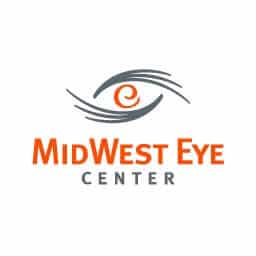Home » Blog » Seeing Clearly and Driving Safely
Seeing Clearly and Driving Safely
Posted by: Midwest Eye Center in General

Your eyesight is considered the most important of your five senses, so taking good care of your eyes is critical. Good eye health is vital for safe driving, and even a slight adjustment in your eyesight affects how well you can see objects in the distance.
What Are the Visual Functions Necessary for Driving?
The visual field and visual acuity is the most critical factor for safe driving. Please check your local laws to determine your vision regulations for driving.
Visual Field – is how wide of an area your eye can see when you focus on a central point. According to the Academy of Ophthalmology, automated perimetry is the most commonly used in the United States, where you watch for flashing lights in a unique device.
Visual Acuity – gauges how clearly you can see and measure by reading letters on an eye chart.
Color Vision – helps to identify brake lights and traffic signals.
Conditions That Can Impact Your Eyesight While Driving
Typical age-related eye changes can affect your eyesight and the ability to drive safely, such as dry eye or presbyopia, which may impact your ability to see the navigation system and reduce the quality of your eyesight at night. Other conditions can affect your vision while driving:
- Glaucoma is a disease that damages your eye’s optic nerve. Often, there are no warning signs or obvious symptoms in the early stages. As the disease progresses, blind spots develop in your peripheral vision or, less commonly, in your central vision.
- Diabetic retinopathy is a disease in which high blood sugar levels cause damage to blood vessels in the retina, stealing both central and peripheral vision.
- A Cataract is a progressive clouding of the natural lens inside the eye that causes blurry vision, glare, and halos around lights. Cataracts can also make it harder to see well at night, in bad weather, or in low light conditions that gradually diminish color vision.
- Macular degeneration is a disease in which a part of the retina called the macula becomes damaged and causes loss of central vision.
Eye Safety Tips for Driving
Your vision is consistently adapting to your surroundings every minute you are driving. Here are a few safety tips to help you improve your driving safety.
- Keep a pair of sunglasses in your car to be prepared for those bright and sunny days. Be sure that the sunglasses block 100% of UVA and UVB rays. Wearing these types of sunglasses will improve your visual comfort on the road.
- Ensure your windshield and windows are clean inside and out, and your headlights and taillights are working correctly so they light the road adequately.
- At night, drive more slowly and avoid looking directly into approaching cars’ headlights; look slightly to the right.
- Constantly adjust your mirrors correctly.
- If you suffer from dry eye syndrome, consult with your eye doctor. This eye condition may cause you to experience light scatter.
Our Goal Is Our Patient’s Lifelong Eye Health
Changes in your vision may be evident for some, while others have a gradual loss of vision that is less noticeable. Keeping your eye exam appointments with your eye doctor will ensure that you detect vision changes early and treat conditions promptly before they cause irreversible vision loss. No matter your age, if you notice any symptoms such as blurry vision, dark spots in your central or peripheral vision, difficulty reading street signs yourself, or a loved one having difficulty, don’t delay making an appointment TODAY with your eye doctor.
Please Drive Safely and Protect Your Eye Health!

References: American Academy of Ophthalmology and the American Optometric Association. This blog provides information and discussion about eye health and related subjects. The content provided within this blog and any linked materials are not intended and should not be considered medical advice. If the reader or any person has a medical concern, they should consult with an appropriately licensed physician.
Recent Comments
Archives
- January 2026
- December 2025
- November 2025
- October 2025
- September 2025
- August 2025
- July 2025
- June 2025
- May 2025
- April 2025
- March 2025
- February 2025
- January 2025
- December 2024
- November 2024
- October 2024
- September 2024
- August 2024
- June 2024
- May 2024
- April 2024
- March 2024
- February 2024
- January 2024
- December 2023
- November 2023
- October 2023
- September 2023
- August 2023
- July 2023
- June 2023
- May 2023
- April 2023
- March 2023
- January 2023
- January 2018
